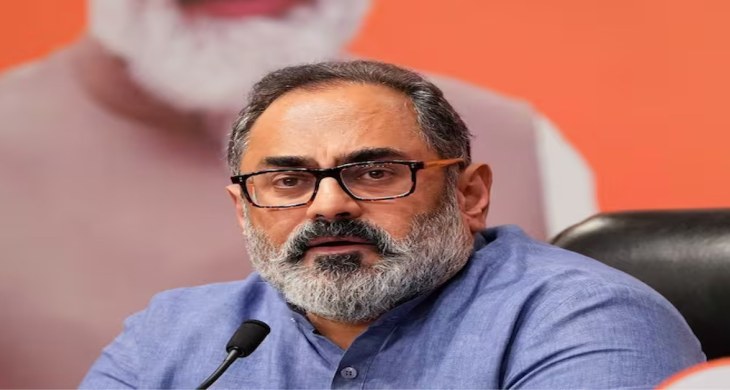Rajeev Chandrasekhar, the Union Minister of State for Electronics and Information Technology (MeitY), expressed that India stands at a pivotal moment in its artificial intelligence (AI) journey. Speaking at CNBC-TV18 and Moneycontrol’s Global AI Conclave in Bengaluru on December 16, he highlighted India’s potential in AI, stating, “We see AI as a significant boost to our thriving economy… We comprehend what it will take for AI to thrive in India.”
Addressing inquiries about a potential performance-linked incentive (PLI) scheme to invigorate investment in India’s AI ecosystem, Chandrasekhar remarked that such extensive resources weren’t necessary at present. Referring to the semiconductor mission, he stated, “We don’t need anything even remotely close to the resources we needed for the semiconductor mission for AI.”
The minister projected substantial growth in India’s tech sector, emphasizing the government’s ambition for India to assume a leading role in global AI utilization. “We have outlined the formula for our innovation ecosystem to excel and become a dominant player in AI,” Chandrasekhar added.
The Global AI Conclave, hosting over 16 sessions with policymakers, thought leaders, and global experts, focused on AI’s revolutionary impact across diverse industries. Discussions encompassed themes like enterprise AI adoption, AI’s role in cybersecurity, and its influence on shaping the nation’s future.
Additionally, notable statements and insights emerged from the event’s discussions:
Priyank Kharge, Karnataka’s IT minister, envisioned Bengaluru as the potential world capital for AI, asserting, “We’ve transitioned from being a global call center to a hub of R&D, positioning ourselves as a disruptive force in global innovation.”
Chris Miller, author of Chip Wars, emphasized the value of chip packaging in generating jobs, stating, “Politicians cherish manufacturing facilities for the employment opportunities they create.”
Sunil Gupta, CEO of Yotta Infrastructure, revealed the launch of Shakti Cloud, an indigenous cloud service poised to rival major players like Amazon Web Services and Microsoft, emphasizing its potential for AI-related tasks.
Pandu Nayak, VP of search at Google, highlighted India’s unique search needs and diverse languages as crucial factors shaping Google’s future search strategies.
Ashok Jhunjhunwala, an IIT-Madras professor, underscored the necessity for AI solutions to address unemployment and poverty, stressing the importance of utilizing AI tools for societal issues.
Mary Snapp, VP of Strategic AI Initiatives at Microsoft, emphasized the importance of responsible AI development and global regulatory alignment.
Andrew Ng, founder of Coursera, acknowledged the US’s lead in AI but highlighted India’s potential in the Gen AI domain, stressing the significance of application layers atop AI technology.
The conclave also featured insights from Sridhar Vembu of Zoho, Andrew Feldman of Cerebras Systems, Manu Chopra of Karya.ai, and Dilip Jose of Manipal Health Enterprises Pvt. Ltd., emphasizing various facets of AI’s impact, challenges, and potential.



![[CITYPNG.COM]White Google Play PlayStore Logo – 1500×1500](https://startupnews.fyi/wp-content/uploads/2025/08/CITYPNG.COMWhite-Google-Play-PlayStore-Logo-1500x1500-1-630x630.png)